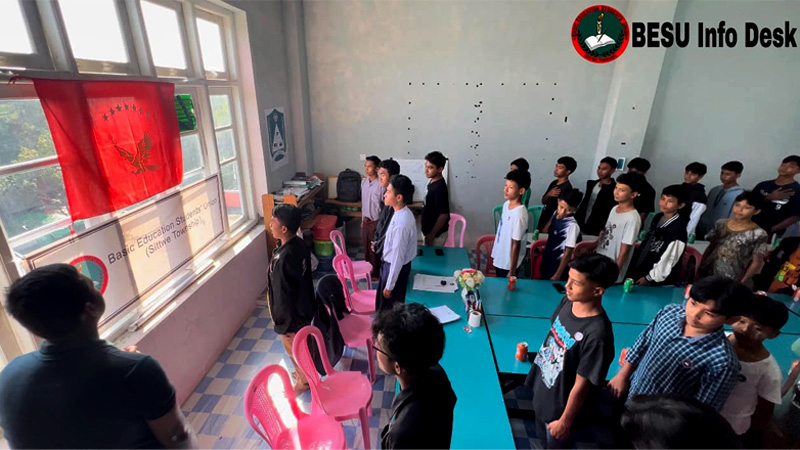- Motorbike spare part prices skyrocket in Arakan State amid tighter traffic rules
- Kyauktaw IDP camps struggle with inadequate latrines
- Religious freedom, interfaith harmony expand in areas controlled by AA in Arakan State
- IDPs in Kyauktaw struggle with collapsing shelters amid aid shortages
- Travel restrictions deny Arakanese youth access to higher education
Editorial: Basic Education Student Unions and Myanmar’s Future Leaders
In developed countries, governments and local leaders give top priority to education and invest significant human and financial resources in their education sectors.
18 Feb 2023

Students today are the leaders of tomorrow. Education is among the most valuable of assets. Education standards determine the prosperity of a nation.
In developed countries, governments and local leaders give top priority to education and invest significant human and financial resources in their education sectors.
In Myanmar, however, decades of under-investment in the education system have taken their toll.
Students’ unions in Myanmar, meanwhile, date back to the colonial period, when students made collective efforts to advocate for their rights. Students continue to fight for their rights today.
Recently, basic education students formed basic education student unions under the aegis of student unions at the university level. At the same time, basic education students’ unions have brought about misunderstanding between students and teachers because of the tender age of those students and their relative lack of understanding when it comes to matters of the world.
In Myanmar society, teachers are regarded as being on the same plane as parents. There is a need to build a similar mutual respect and understanding between teachers and students.
While it is hoped that the basic education students union will provide better education opportunities for students, there is a need for parents, teachers and university student unions to monitor, protect and correct them as necessary — and to prevent these young people from falling for the ploys of political opportunists.
Though students’ unions are traditionally linked with politics in Myanmar, members of basic education students’ unions are young, leading to concerns that they may be manipulated or abused for political gain.
There are also concerns that students will become preoccupied by union duties, thereby neglecting their school lessons.
Though it is assumed that this change to the education system was changed with good intention, a comprehensive assessment of Myanmar’s human resources and economic situation will be needed. It is certainly possible that basic education student unions will have a valuable part to play in this assessing.
Education plays a crucial role in the development of a nation. It is where children are taught discipline, the value of hard work and a sense of responsibility. Anything that is detrimental to the educational journeys of our youngest learners amounts to hindering national development.
With the emergence of basic education student unions, Myanmar’s education system stands a decent chance of changing for the better. As such, if any misunderstandings arise between teachers and these budding young leaders, university student unions should act as go-betweens, ensuring that these new voices on the scene are heard, and counseled, in appropriate measure.






.jpg)













